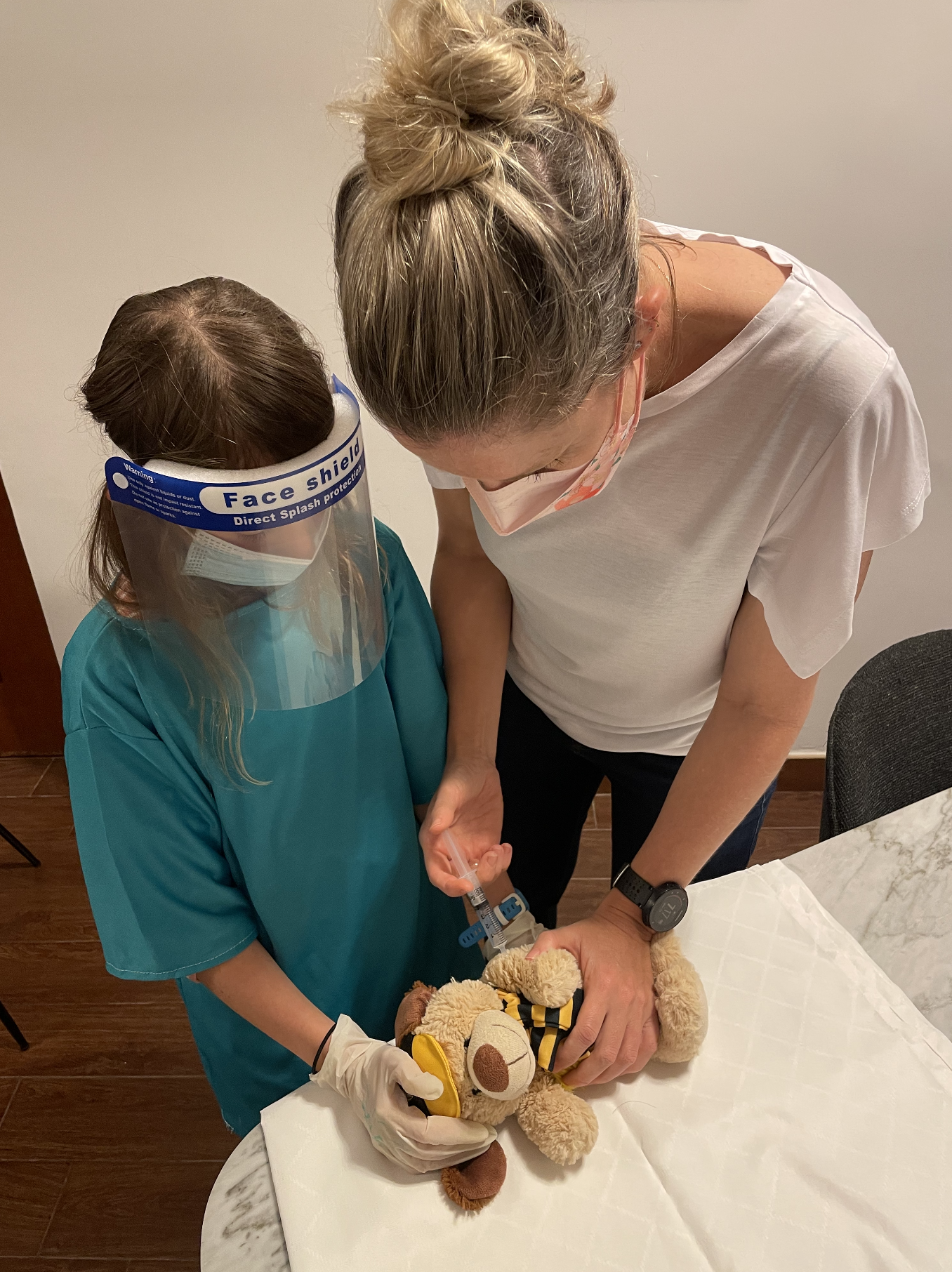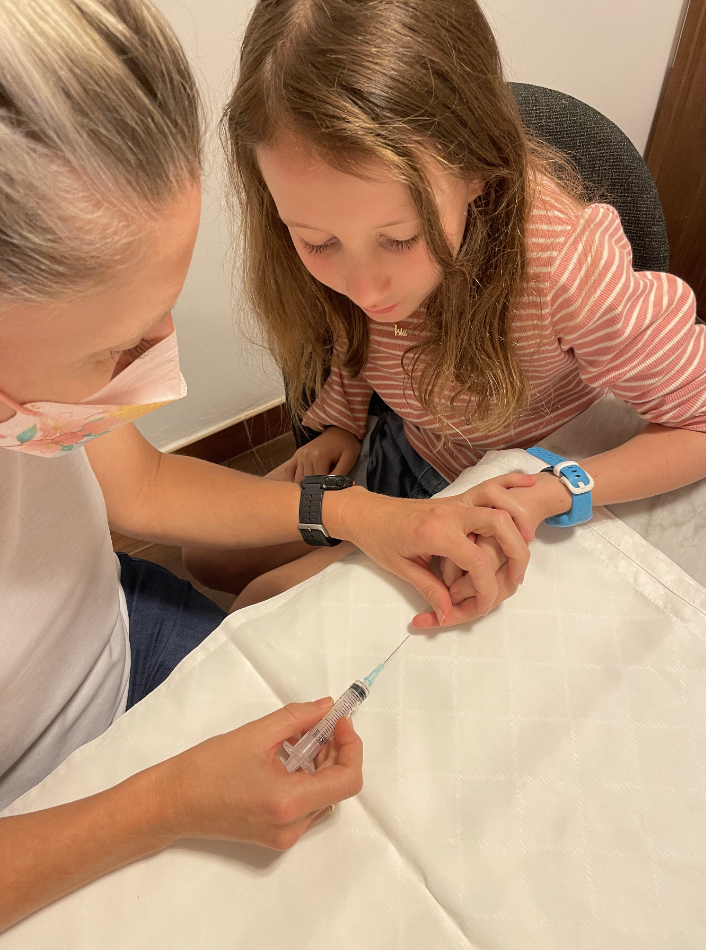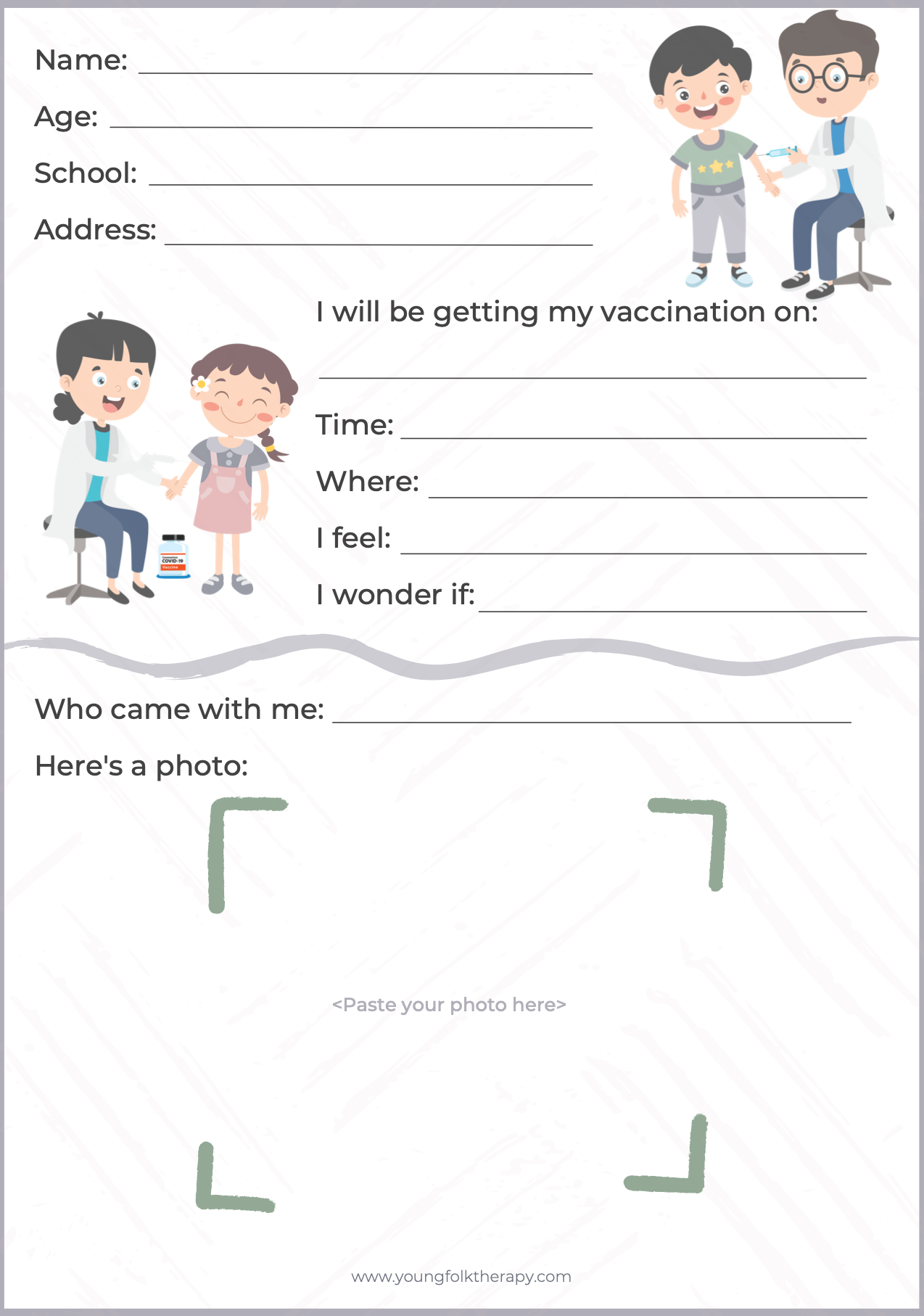How to prepare your child for the Covid Vaccination
Interesting fact, did you know the fear of needles is called ‘Trypanophobia’? Trypano is Greek and means ‘pierce or puncture’, I’m thinking this might be a staple question in any trivia night, given how much time, resources and Facebook posts have been dedicated to vaccinations in the past two years.
Vaccinations* will be readily available for children aged between 5-11 years old in Hong Kong very soon, and now is a good time to start preparing your child for their vaccination.
*For up to date information and bookings please check here | Here is a great podcast about Zero Covid, the Fifth Wave and Is It Time for a Plan B?
Here are some practical tips on how to prepare your child if they are feeling a little anxious or hesitant to receive their vaccination.
Medical Play
Most children in this age bracket still enjoy pretend and imaginative play. Leading play therapist and individual needs teacher, Zoe O’Reilly, says:
“Medical role play is an integral play theme for young children and is a wonderful tool to help children play out their fears, explore potentially scary situations and integrate their experiences. Playing and replaying the little, seemingly insignificant details of a medical procedure; like swabbing with alcohol before an injection, with dolls and teddies can prepare a child for an unknown experience. This type of play not only helps them prepare for specific medical procedures but also builds resilience for future life and medical events.”
One of the advantages of role play is that children can become desensitised to parts of the procedure that you may not realise is the cause of their anxiety or distress. For example, the smell or touch of an alcohol swab may be horrible for your child or the fact that a blood pressure cuff squeezes their arm tightly.
It is almost certain that your child will be given their vaccination by a stranger, dressed head to toe in Personal Protective Equipment, including face mask and face shield. This image is extremely frightening and impersonal. One way to overcome this fear is to buy your child a set of PPE so you and they can dress up with it at home so it’s less frightening. You can also buy syringes without the needles so when they play Doctors and Nurses they can practice giving and getting the vaccination. If your child is really afraid and you are feeling brave, you can allow them to play with an actual needle or show them what it looks like beforehand. You will be surprised how many children’s first reaction is “it’s not as big as I thought!”
Use honest, age-appropriate language.
If your child asks if the needle will hurt, you must tell them the truth because this will help build trust for any future medical procedures. Don’t be tempted to lie and say it won’t hurt. Pain can be subjective, but more importantly, your child will inevitably need some other medical intervention in the future, and they need to know they can trust you when they ask you difficult questions. I would recommend telling your child that when the needle goes in, it will be a bit painful but it will be over very, very quickly. This is another reason why Medical play initially is so important, so they can experience for themselves how fast it takes them to ‘push’ the needle in. This helps your child develop a sense of timing and understanding of ‘quick’.
To explain a ‘vaccination’, to your child, use age-appropriate language such as: ‘It’s a type of medicine that can only be given in a needle that is going to stop you from getting sick from Covid’.
Make a plan
We know that routine and control decreases anxiety, so allow your child to have as much control over the situation as possible. Allow them to choose what they will wear, which parent goes with them, what toy they will bring and if you agree, what special treat they can have after it's over. Roleplay and/or tell them what will happen when they get to the clinic step by step so your child builds up a mental picture in their mind. Show them photos or take them with you when you get your vaccination so they know what to expect. We’ve created a worksheet that you and your child can fill out before their vaccination and a printable certificate you can give them after. *
Include in your plan things like: “I’ll hold your hand or you will sit on my lap” etc.
Don’t ask any questions before the vaccination
Please talk to your health care provider or Doctor BEFORE you decide to have your child vaccinated. Do not wait until you are in the vaccination centre before you ask about potential side effects or any other questions etc. Little ears are perceptive and can misinterpret answers to questions which may make the process difficult or even result in refusal. Additionally, you want the whole process to be as quick as possible so unwanted delays may cause an increase in anxiety in your child.
Make sure your child is dressed appropriately
Ensure your child is wearing a short-sleeved shirt so their arm is easily accessible. If they have clothing that is hard to remove, this could be a barrier for them to get their vaccination.
Sit your child on your lap and give them a long deep cuddle or if they are too big (or embarrassed) sit close so your legs are touching and hold their hand.
When children are anxious, adrenaline is coursing through their bodies, resulting in butterflies in their tummy, increased breathing, fidgeting and a decrease in their ability to understand language. We know that when deep pressure is applied to the body, the parasympathetic nervous system is stimulated which brings about calm and peace. Additionally, dopamine and serotonin are released, the feel-good neurotransmitters (hormones). A simple hug by a loved and trusted adult before, during and after the vaccination can make all the difference.
Have a plan if your child starts screaming or crying during the process.
This is an important one. Before taking your child to the vaccination centre, you need to have a clear plan if things turn pear-shaped. Firstly, you need to decide whether you will forcibly hold your child down so they can have the vaccination or whether you are prepared to leave if they start screaming or are visibly upset. Although it's not pleasant, you may be in the position of needing to physically restrain your child. Make sure you agree with your wife, husband or other caregivers before going in as to what you will do in this situation. You will need to weigh up your personal beliefs regarding the risk of not vaccinating against the trauma of the situation.
If you are concerned about your child’s ability to be vaccinated, Young Folk Therapy is offering Medical Play and Vaccination Preparation sessions, with Leith Stewart, Occupational Therapist. Please click here to make an appointment.




